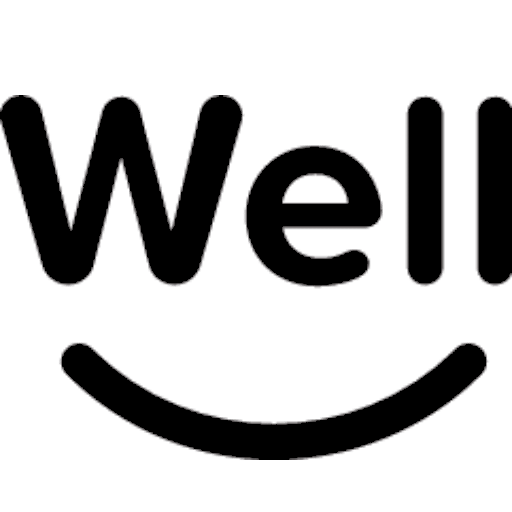
5 Tips For Healthy Lungs
Healthy aging goes beyond just heart, muscle, and joint health; Respiratory health is just as important! Take a deep breath and read on to discover ways to keep your lungs healthy.

Healthy aging goes beyond just heart, muscle, and joint health; Respiratory health is just as important! Your lungs are one of the hardest working systems of the body, bringing fresh oxygen in and distributing that oxygen to every cell, tissue, and organ via the bloodstream.
Just like every other organ of the body, your lungs need to be in good standing to perform at maximum capacity. So take a deep breath and read on to discover ways to keep your lungs healthy!
1. Stay Active
Exercising does more than just keep your body in shape! It keeps your lungs in shape, too.
During exercise, your muscles demand more oxygen and your lungs respond by working harder to supply additional oxygen throughout your body. You may even notice that the more often you exercise the less short of breath you are. This is because your body becomes more efficient with supplying oxygen to your muscles.
Aerobic activities like walking or running get the heart pumping and oxygen flowing. It is recommended that adults get 30 minutes worth of exercise at least five days a week.
While exercise is great for your overall lung health, if you have a medical condition of any kind, we recommend consulting with your doctor before beginning any kind of exercise regimen.
2. Use Natural Cleaning Products
Unfortunately, a large number of conventional cleaning products contain harmful chemicals and toxic fragrances. While it’s not safe to be exposed to topically, it’s also not safe to be breathing. Toxic fumes can irritate the lungs and provoke respiratory infection or illness.
Products used most often like detergents, fabric softeners, bathroom cleaners, and air fresheners should be your priority. Vinegar and baking soda are multi-purpose cleaners and known to be effective at lighting grease and bad odor. You can also use fragrance-free soap with warm water.
All of these options do not emit fumes and aren’t filled with hazardous chemicals, and are a great alternative for keeping your lungs and airways clear of irritation.
For a natural household cleaner recipe, click here!
3. Drink More Water
Particularly for respiratory health, drinking water consistently helps to keep the mucus lining or your airways and lungs thin. When we are dehydrated, this lining can thicken and slow down breathing resulting in respiratory problems.
4. Eat A Healthy Diet
Nutrient-rich foods are going to be your best bet for keeping your lungs healthy. Foods especially rich in antioxidants are important for maintaining optimal health.
Free radicals (unstable molecules that can cause infection or disease) can damage lung cells. Free radicals are introduced when there is a disruption in our body's natural process (caused by stress and/or bad diet). Antioxidants help to neutralized free radicals.
To help your body properly defend itself against free radicals, eat plenty of foods with high levels of antioxidants to promote your respiratory health.
Not sure which foods are high in antioxidants? Click here!
5. Deep Breathing Exercises
Breathing exercises can be just as beneficial as regular aerobic exercise! As we age, our lung capacity (the amount of air that our lungs can hold) decreases slowly, and it becomes more difficult to get oxygen flowing adequately through our bodies.
Breathing only with your chest is also a habit that many people get into. Bad posture can weaken the muscles used when breathing which results in utilizing your chest more for breathing instead of the diaphragm.
You can incorporate breathing exercises into your daily routine! One of the more popular breathing exercises is diaphragmatic breathing also known as “belly breathing.” This type of breathing exercise helps to strengthen your diagram.
So how do you belly breathe?
1. Sit/lie down
2. Place one hand on your upper chest
3. Place the other hand below your ribcage
4. Breathe in through your nose and out your mouth
If you are interested in knowing more about the benefits of chiropractic care or whether or not it is the right treatment for you, schedule your New Patient Special!
Recommended ARTICLES






5 Tips For
Healthy Lungs
Healthy aging goes beyond just heart, muscle, and joint health; Respiratory health is just as important! Take a deep breath and read on to discover ways to keep your lungs healthy.

Healthy aging goes beyond just heart, muscle, and joint health; Respiratory health is just as important! Your lungs are one of the hardest working systems of the body, bringing fresh oxygen in and distributing that oxygen to every cell, tissue, and organ via the bloodstream.
Just like every other organ of the body, your lungs need to be in good standing to perform at maximum capacity. So take a deep breath and read on to discover ways to keep your lungs healthy!
1. Stay Active
Exercising does more than just keep your body in shape! It keeps your lungs in shape, too.
During exercise, your muscles demand more oxygen and your lungs respond by working harder to supply additional oxygen throughout your body. You may even notice that the more often you exercise the less short of breath you are. This is because your body becomes more efficient with supplying oxygen to your muscles.
Aerobic activities like walking or running get the heart pumping and oxygen flowing. It is recommended that adults get 30 minutes worth of exercise at least five days a week.
While exercise is great for your overall lung health, if you have a medical condition of any kind, we recommend consulting with your doctor before beginning any kind of exercise regimen.
2. Use Natural Cleaning Products
Unfortunately, a large number of conventional cleaning products contain harmful chemicals and toxic fragrances. While it’s not safe to be exposed to topically, it’s also not safe to be breathing. Toxic fumes can irritate the lungs and provoke respiratory infection or illness.
Products used most often like detergents, fabric softeners, bathroom cleaners, and air fresheners should be your priority. Vinegar and baking soda are multi-purpose cleaners and known to be effective at lighting grease and bad odor. You can also use fragrance-free soap with warm water.
All of these options do not emit fumes and aren’t filled with hazardous chemicals, and are a great alternative for keeping your lungs and airways clear of irritation.
For a natural household cleaner recipe, click here!
3. Drink More Water
Particularly for respiratory health, drinking water consistently helps to keep the mucus lining or your airways and lungs thin. When we are dehydrated, this lining can thicken and slow down breathing resulting in respiratory problems.
4. Eat A Healthy Diet
Nutrient-rich foods are going to be your best bet for keeping your lungs healthy. Foods especially rich in antioxidants are important for maintaining optimal health.
Free radicals (unstable molecules that can cause infection or disease) can damage lung cells. Free radicals are introduced when there is a disruption in our body's natural process (caused by stress and/or bad diet). Antioxidants help to neutralized free radicals.
To help your body properly defend itself against free radicals, eat plenty of foods with high levels of antioxidants to promote your respiratory health.
Not sure which foods are high in antioxidants? Click here!
5. Deep Breathing Exercises
Breathing exercises can be just as beneficial as regular aerobic exercise! As we age, our lung capacity (the amount of air that our lungs can hold) decreases slowly, and it becomes more difficult to get oxygen flowing adequately through our bodies.
Breathing only with your chest is also a habit that many people get into. Bad posture can weaken the muscles used when breathing which results in utilizing your chest more for breathing instead of the diaphragm.
You can incorporate breathing exercises into your daily routine! One of the more popular breathing exercises is diaphragmatic breathing also known as “belly breathing.” This type of breathing exercise helps to strengthen your diagram.
So how do you belly breathe?
1. Sit/lie down
2. Place one hand on your upper chest
3. Place the other hand below your ribcage
4. Breathe in through your nose and out your mouth

